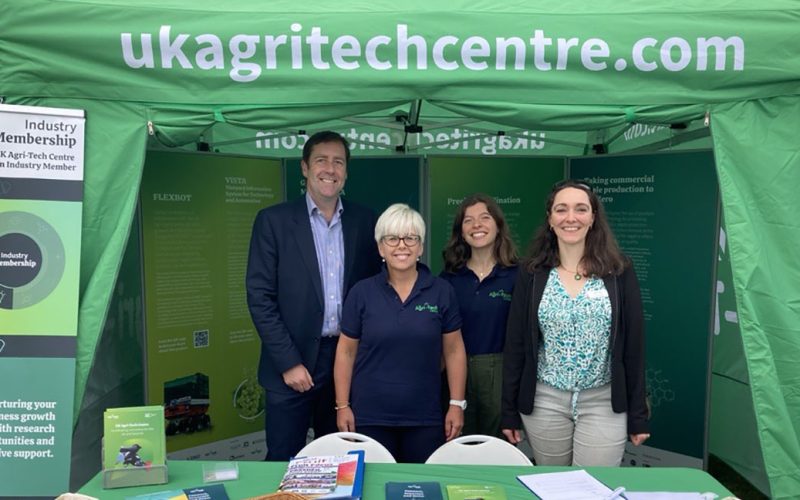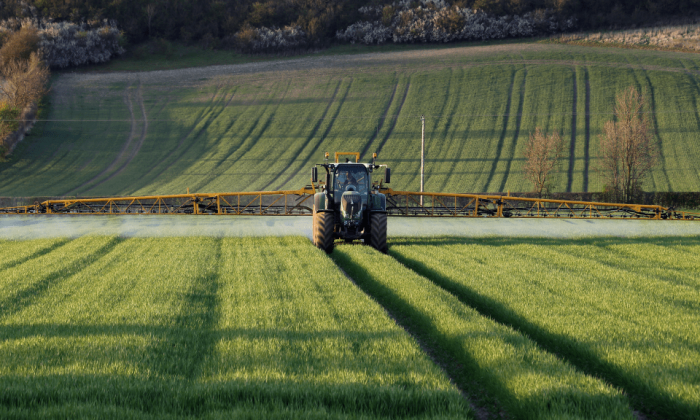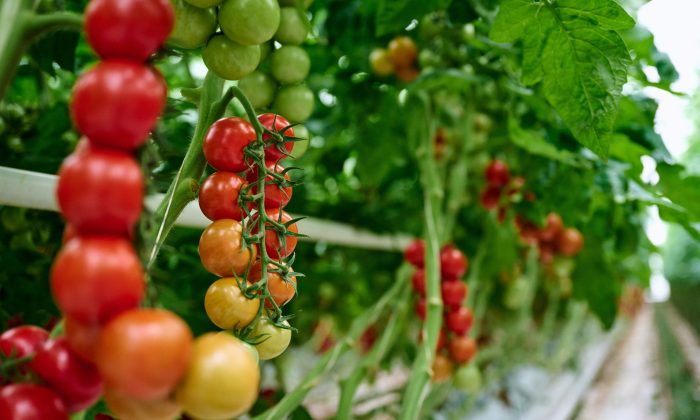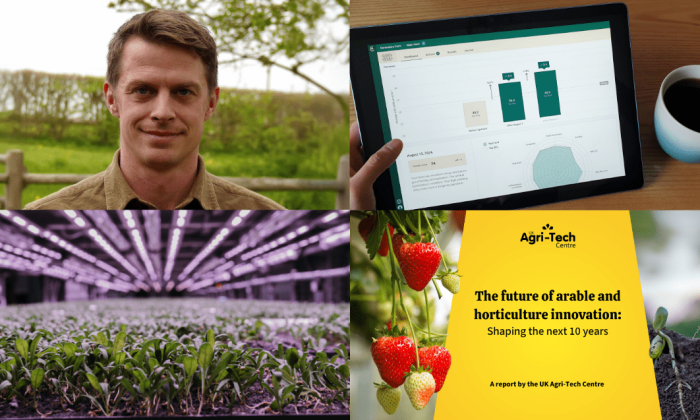With the broad sector coverage of the UK Agri-Tech Centre, it’s been great to get along to some of the events and shows that I haven’t attended for a while. It would have been back in my NFU days a decade or so ago that I last headed down to East Malling to attend Fruit Focus. Since that time our self-sufficiency in fruit production has continued to come under increasing pressure, with the challenges around labour and viability continuing to squeeze growers across the fruit sector.
Whilst self-sufficiency is an understandable benchmark for the agri-food sector, I’ve always viewed it as a reflection of our relative competitiveness against producers in other parts of the world. With that in mind, I’m interested in where technology can be applied to improve competitiveness and fix some of the key challenges our sector faces.
That’s why research and development are so important. We are working on some particularly exciting projects in the fruit production industry and it was great to see businesses joining our UK Agri-Tech Centre experts to share with the wider industry at Fruit Focus 2024.
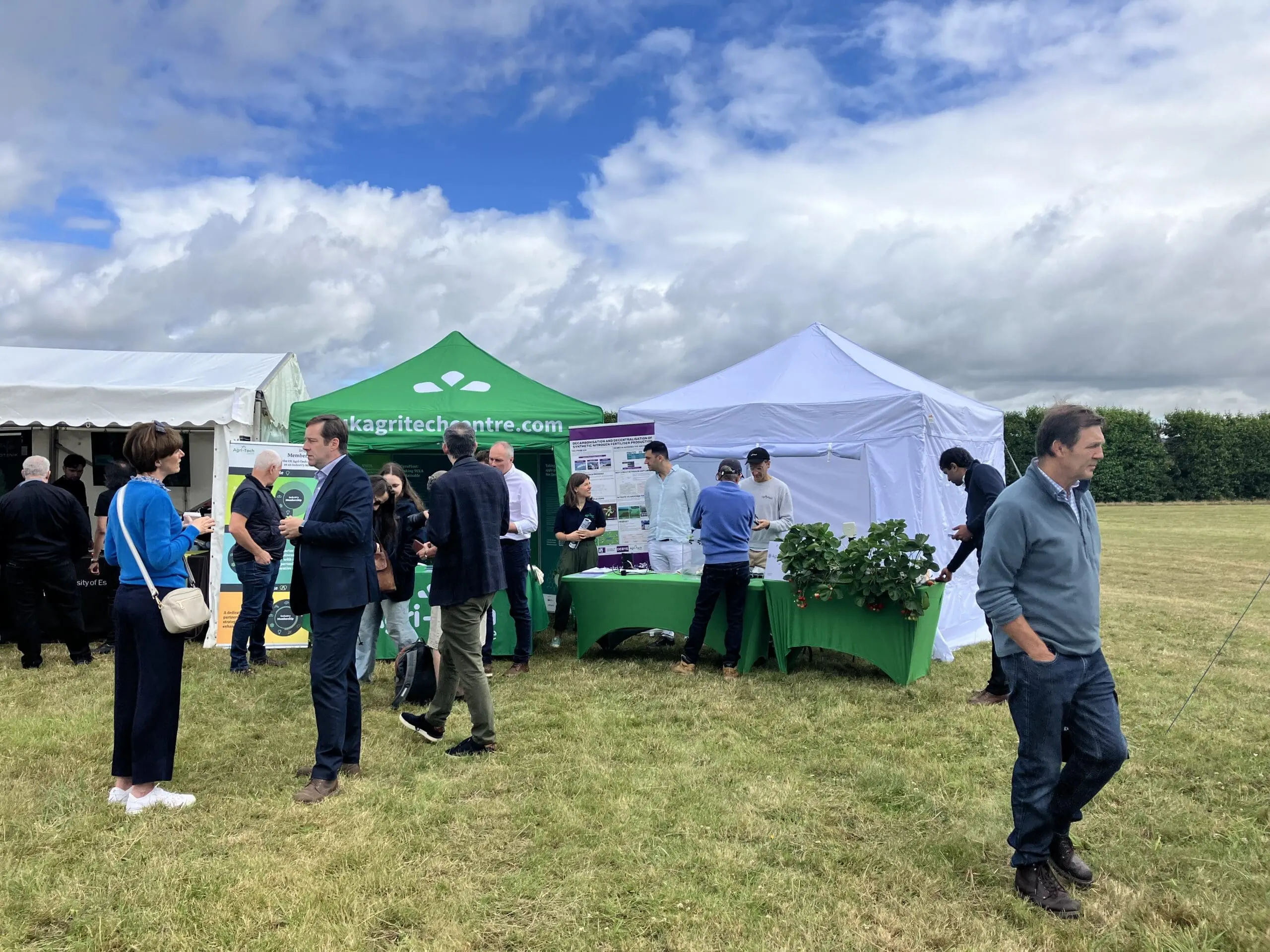
Robotics to solve labour shortages
The potential for robotics to support the human workforce in the horticultural sector is highly promising. The Flexbot project, led by Fox Robotics in collaboration with the UK Agri-Tech Centre, UK Farm Growers, and the University of Surrey, integrates collaborative logistics robots, or cobots, into soft fruit farming operations. Scalable cobots could help mitigate labour shortages, manage production cost increases and optimise yields.
Precision pollination for optimised strawberry production
The Precision Pollination project’s objective is to develop a system that improves strawberry yield, grade, shelf life and nutritional quality. Parameters such as berry grade, size, Brix reading (sweetness), nutritional content and shelf life are analysed to determine optimal pollination and its impact on the quality and quantity of the yield. The project is led by AgriSound in collaboration with the UK Agri-Tech Centre, the National Institute of Agricultural Botany (NIAB), PheroSyn and Biobest, with funding from Innovate UK.
Sustainable, substrate-free soft fruit
GyroPlant aims to create sustainable and resilient and substrate-free growing systems at scale. This project seeks to overcome barriers to developing these systems and explores their use for strawberry and blueberry propagation and production. While GyroPlant technology offers a reusable substrate alternative superstructure for growing plants, preliminary R&D has shown that combining this technology with a minimal amount of substrate may be beneficial in larger Total/Controlled Environment Agriculture (T/CEA) farm systems. The project will conduct plant growth trials to determine optimal growing protocols using GyroPlant technology in combination with various sustainable substrates or seeding technologies in different types of TCEA fertigation (fertilising irrigation) systems. The project’s outcomes could significantly improve farm resilience and self-sufficiency and reduce waste.
The UK Agri-Tech Centre is collaborating with GyroPlant on this project, which is funded by Innovate UK and the Biotechnology and Biological Sciences Research Council (BBSRC).
Support net zero apple production
This project investigates the use of pyrolysis as a net-zero technology for processing end-of-life apple orchards. The aim is to remove carbon and mitigate the effects of open burning on air quality. The project partners have received funding from Innovate UK to evaluate the apple supply chain and its environmental implications. The project explores the suitability of existing pyrolysis technologies for wider adoption, develops protocols for processing orchard trees, and demonstrates the advantages of biochar as a soil improver. Life cycle and business model analysis will illustrate the environmental and economic benefits of adopting this technology.
This project has a wide consortium, including British Apples & Pears Ltd, Stocks Farm, Adrian Scripps, University of Edinburgh, Combind Industries, Carbogenics, RE Collins HS, Hutchinson’s, Cranfield University and the UK Agri-Tech Centre, with funding from Innovate UK.
